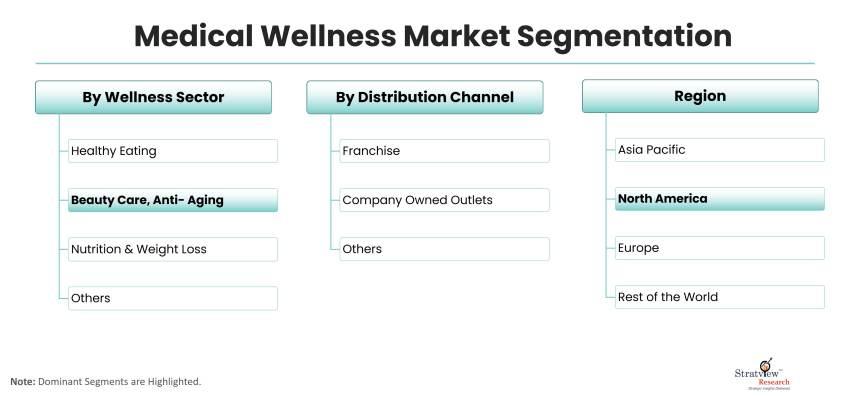Wearable devices, such as fitness trackers, smartwatches, and health monitoring devices, have become increasingly popular in recent years. These devices offer a range of features that track various aspects of our health and wellness, including heart rate, sleep patterns, physical activity, and even stress levels. While initially geared towards fitness enthusiasts, wearable devices are now making a significant impact in the medical wellness market, revolutionizing the way we approach healthcare and self-care. The global medical wellness market report covers the COVID-19 Impact Analysis and forecast to 2026.
The integration of wearable devices in the medical wellness market is transforming the traditional patient-doctor dynamic. These devices provide individuals with access to real-time data about their health, allowing them to take a proactive approach to their well-being. By continuously monitoring vital signs and collecting relevant health data, wearables enable users to gain insights into their overall health status and make informed decisions about their lifestyle and medical treatments.
One of the key benefits of wearable devices is their ability to promote preventive healthcare. Rather than solely focusing on treating illnesses after they occur, wearables emphasize early detection and prevention. By monitoring metrics such as heart rate, blood pressure, and sleep patterns, wearables can alert users to potential health issues or irregularities. This empowers individuals to seek timely medical advice and make lifestyle changes that can help prevent the onset of chronic conditions or exacerbation of existing ones.
Wearable devices also promote a more personalized and patient-centric approach to healthcare. Each individual has unique health needs, and wearable devices allow for tailored monitoring and intervention. With the help of advanced algorithms and artificial intelligence, wearables can analyze collected data and provide personalized insights and recommendations. This personalized feedback enables users to make specific adjustments to their lifestyle, exercise routines, and sleep patterns, optimizing their overall wellness.
The integration of wearable devices in the medical wellness market extends beyond individual health tracking. These devices are increasingly being used in remote patient monitoring and telemedicine programs. By connecting wearables to telehealth platforms, healthcare providers can remotely monitor patients' health in real-time. This is especially beneficial for individuals with chronic illnesses who require regular monitoring and timely interventions. Wearable devices enable healthcare professionals to track patients' vitals and health trends, detect anomalies, and intervene when necessary, all from a distance. This not only enhances patient care but also reduces the need for frequent hospital visits, leading to cost savings and improved patient satisfaction.
Furthermore, wearable devices have the potential to revolutionize clinical trials and medical research. Traditionally, clinical trials rely on periodic visits to research sites, which can be burdensome for participants and limit the availability of real-time data. Wearable devices offer a solution by providing continuous data collection and remote monitoring of trial participants. This allows researchers to gather a wealth of information, such as activity levels, heart rate variability, and sleep quality, in a non-intrusive manner. The utilization of wearables in clinical trials can lead to more accurate and comprehensive data, accelerating the research process and improving the development of new treatments.
While wearable devices offer numerous opportunities in the medical wellness market, there are challenges to overcome. Data privacy and security concerns remain at the forefront, as wearable devices collect sensitive health information. Stricter regulations and robust security measures need to be in place to protect user data and ensure privacy.
In conclusion, the integration of wearable devices in the medical wellness market has the potential to transform healthcare and empower individuals to take control of their well-being. These devices offer personalized health monitoring, preventive care, and remote patient monitoring, enhancing patient-centric healthcare. Furthermore, wearables can revolutionize clinical trials and medical research by providing real-time, non-intrusive data collection. As technology continues to advance and data security concerns are addressed, wearable devices will play an increasingly vital role in promoting and maintaining our overall health and wellness.
